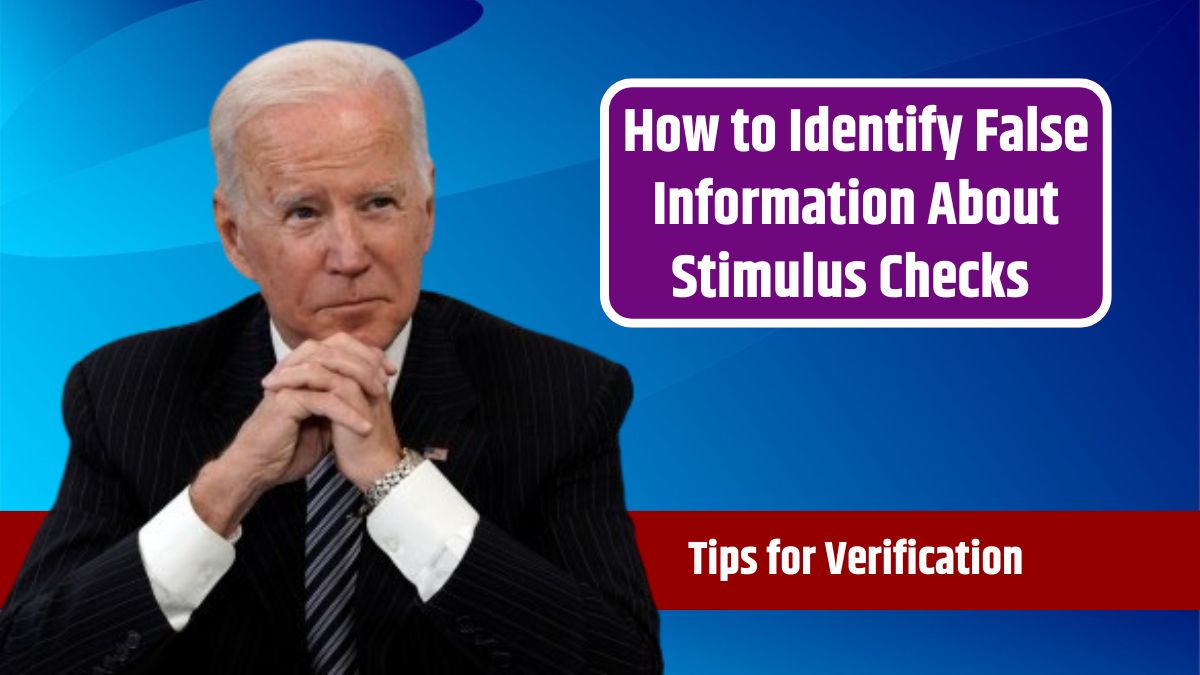In today’s digital age, discerning between genuine information and fake news is vital, especially concerning critical topics like stimulus checks. These economic aids are essential for many families, and misinformation can lead to confusion and scams. Here’s how to protect yourself and ensure you receive accurate information.
Verify the Source
One of the first steps in authenticating information about stimulus checks is to consider the source. Official sources, such as government websites or recognized financial institutions, are the most reliable. Scammers often use phishing techniques to steal your personal data, sending emails or text messages that appear legitimate but are designed to obtain your confidential information. Always check the sender’s email address and avoid clicking on suspicious links.
Too Good to Be True
If something sounds too good to be true, it probably is. Be wary of news that promises additional stimulus payments or increases in established amounts without any official confirmation. These fake news stories exploit people’s desire for more financial aid. For instance, flashy headlines promising additional stimulus checks worth thousands with no official announcement are red flags. These stories aim to grab your attention and lead you to fraudulent websites where your personal or financial information can be stolen.
Verifying Information
To avoid misinformation, always consult official sources. The government’s website, the Treasury Department, and other official agencies are the right places to get accurate and up-to-date information about stimulus checks. Recognized news agencies and established media outlets typically verify information before publishing it. Use these resources to confirm any news you see on social media or lesser-known websites.
Beware of Message Chains
During crises, message chains often circulate on WhatsApp or social media with false or alarming information. These messages can include incorrect or outdated details about stimulus checks, causing unnecessary panic. If you receive such a message, don’t share it until you’ve verified its accuracy through reliable sources. Stopping the spread of false information is essential to prevent confusion and fraud.
Online Platforms
Several online tools can help you verify the authenticity of information. Platforms like FactCheck.org and Snopes offer news verification services and can be very useful for confirming whether a news story about stimulus checks is true or false. These platforms usually have teams of journalists and experts who investigate and debunk fake news, providing detailed information on how to detect and avoid scams.
Report
If you find false information about stimulus checks, report it. Notify the platform where you found it, whether it’s Facebook, Twitter, or any other. You can also inform official organizations so they can take necessary action and prevent others from falling into the trap. By reporting fake news, you help create a safer information environment and protect other users from potential fraud.
The key to distinguishing fake information about stimulus checks is always to verify sources and be skeptical of offers that seem too good to be true. Consult official sources and use verification tools to ensure the information you receive is accurate. Don’t be fooled by sensational headlines or alarming message chains. Accurate and reliable information is your best ally for managing your finances and making the most of the benefits you are entitled to. Protecting your personal and financial information is crucial.
Stay alert and follow these tips to avoid fraud and ensure you receive the stimulus checks you deserve.
FAQs
How can I verify information about stimulus checks?
Consult official sources like government websites or recognized news agencies.
What should I do if I receive suspicious emails or messages?
Avoid clicking on any links and check the sender’s email address carefully.
Are there tools to verify news authenticity?
Yes, platforms like FactCheck.org and Snopes can help verify the authenticity of news.
Should I share message chains about stimulus checks?
No, verify the information first through reliable sources to prevent spreading false information.
How do I report false information?
Notify the platform where you found it or inform official organizations to take action.
